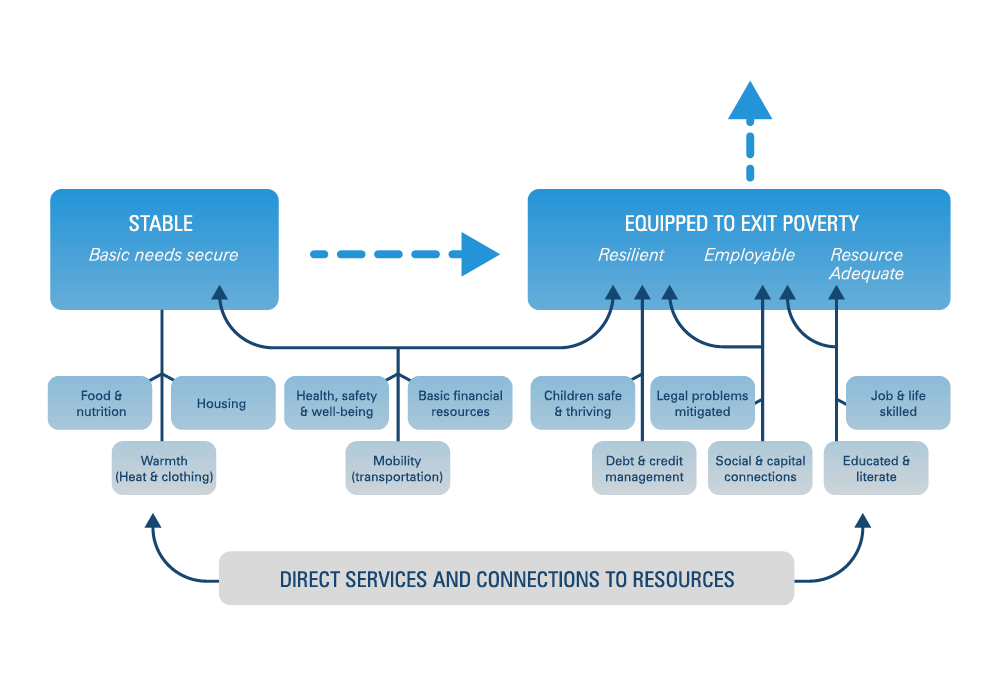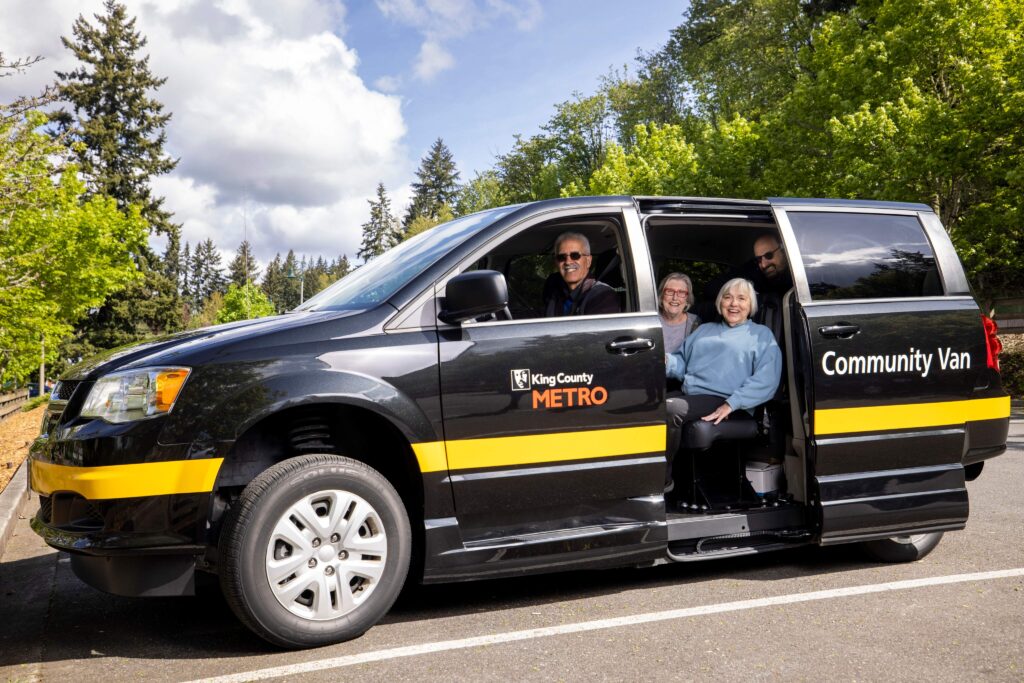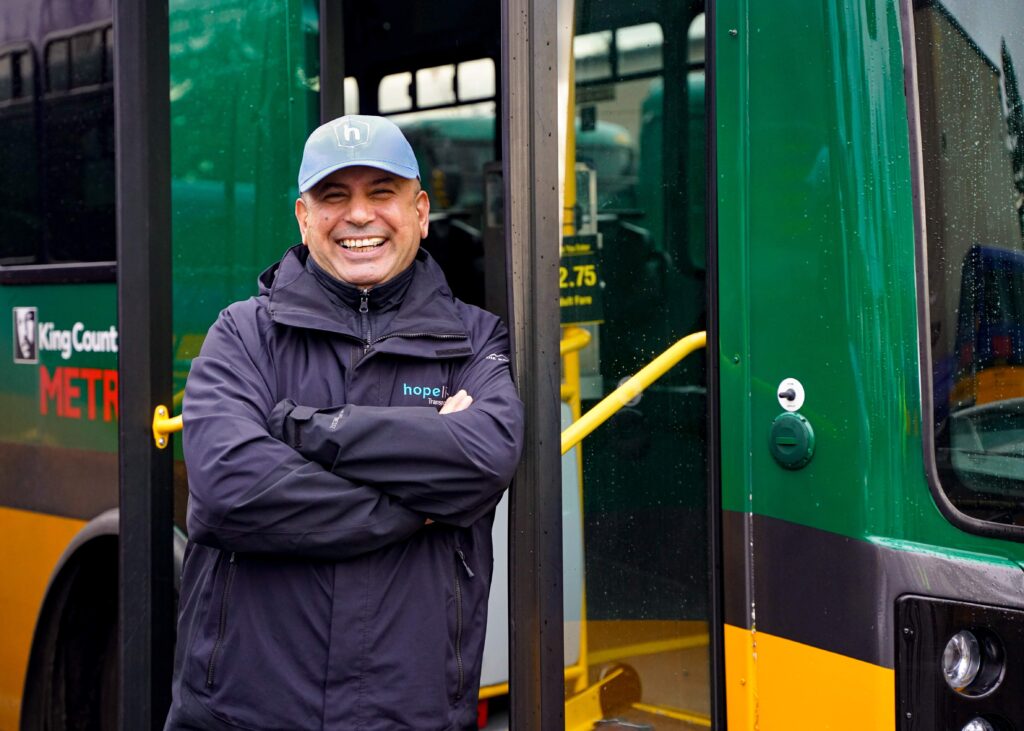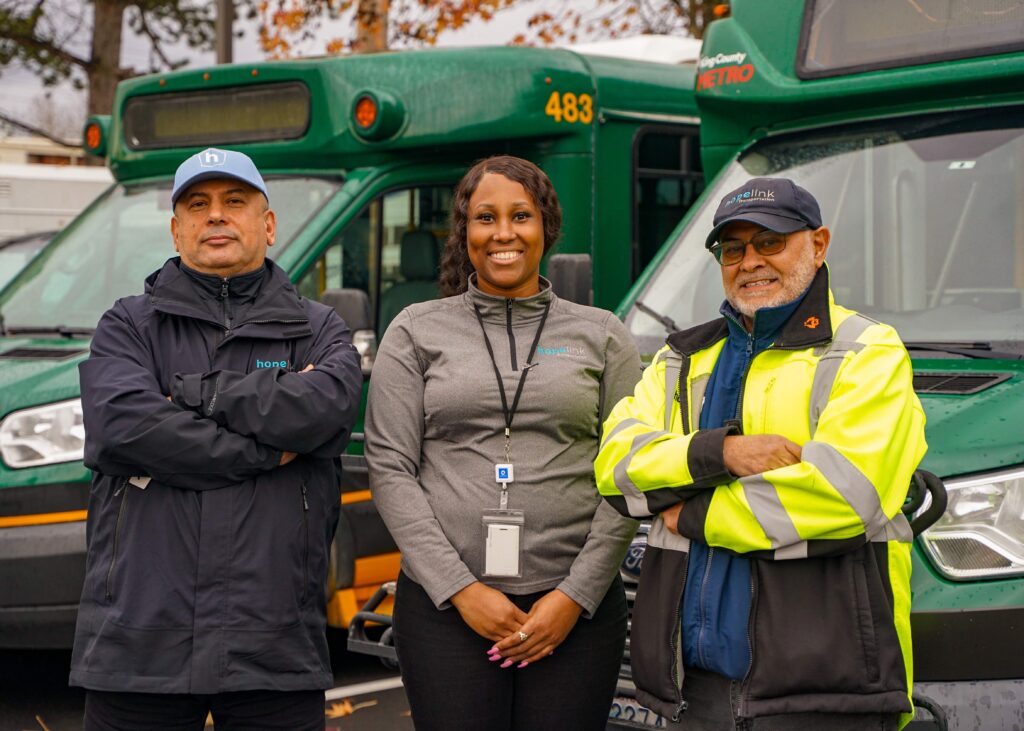How Transportation Access Impacts Poverty
For people experiencing poverty, the road toward stability can be long, but one thing is clear: being able to get around is a critical part of this journey. Without transportation access, utilizing Hopelink services like fresh food from our Food Markets or support from an employment specialist is much harder.
“Transportation is a means to opportunity and access. It is nestled in between Hopelink’s Theory of Change that illustrates the path towards exiting poverty,” said Staci Sahoo, Hopelink Director of Mobility Management. “Without transportation, people don’t have access to food, employment, healthcare, and much more.”

Whether it’s having a timely bus ride to a job interview, a wheelchair accessible vehicle to get to medical appointments, or a short walk across the transit station to access a connecting line – everyone needs access to reliable, affordable transportation.
According to the 2023 Washington State Transportation Mobility Report, there’s a need for improving access and mobility, particularly for vulnerable populations in historically-excluded communities. For many of our neighbors who live in these areas, the need is immediate. Hopelink offers a variety of transportation options to support greater access to mobility, with each program providing different opportunities to meet diverse needs. Programs include:

Community Van
A King County Metro service operated by Hopelink, Community Van provides shared rides through volunteers, either one-time or recurring – to anywhere up to two hours driving distance away, and are available throughout the day, evenings, and on weekends.
Dial-A-Ride Transit (DART)
A King County Metro service operated by Hopelink, DART offers bus routes in some neighborhoods using minibuses that can go off regular routes to pick up and drop off passengers. DART operates on a fixed schedule but offers more flexibility than regular Metro buses.

Find a Ride
To address mobility barriers for older adults and people with disabilities across Piece, King, and Snohomish Counties, Hopelink’s Mobility Management team and the King County Mobility Coalition launched the first phase of a new trip planner on findaride.org in March of 2024. This development was made possible by support from Washington State Department of Transportation, King County Metro, Sound Transit, and other partners.
Medicaid Transportation
Hopelink brokers Non-Emergency Medical Transportation in King and Snohomish Counties for medical services covered by Medicaid.
Mobility Management
Hopelink’s Mobility Management team provides education and resources through four travel training programs in King County:
- Travel Ambassadors
- Public Transit Orientation
- Community Transportation Navigators
- Getting Around Puget Sound (GAPS)

Beyond Hopelink’s Transportation programs that work to remove barriers and increase mobility access, the agency works to support systemic change through its advocacy efforts.
During the 2024 Washington State Legislative Session, Hopelink supported legislation that promotes community and transit-oriented housing development. “Transit-oriented development is critical as transportation provides access to jobs, education, and essential services,” said Susan Carter, Hopelink VP of Transportation. “It empowers individuals to meet their needs, pursue opportunities, and lay the foundation for long-term stability.”
For even more information about any of the transportation programs listed above, please visit our Transportation web page!
